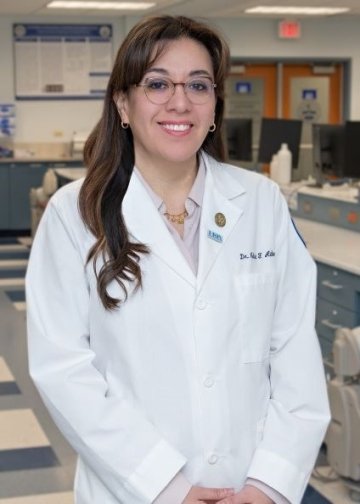
"To anyone that suffers from Auditory Processing Disorder or a related disorder, I hope that this gives them assurance that it is okay to be different and life goes on."
Name: Alexander Hobby
Hometown (City, State): Temecula, CA
Undergraduate degree: B.S., Biochemistry
Current program(s) of study: Master’s degree in Speech-Language Pathology
What inspired you to pursue a healthcare career?
My grandfather was a general practitioner. I have always wanted to work in healthcare to help people, but I did not know which career to choose. Over the course of several years, I have worked and/or studied in different fields including healthcare, dentistry, and now speech-language pathology.
How did your background and history factor into your career choice?
Originally, I wanted to be a dentist. I enrolled in dental school in 2020, and for the first two years I was successful. However, in my third year when I started clinic, I had a difficult time. I had a hard time remembering and following instructions. I could not make out certain words, and I would forget remarks my instructors would say. I struggled so much that I was barred from seeing patients and placed on academic probation. I did not understand why I was suddenly doing so poorly in dental school. My dental school wanted to dismiss me from the program, but I was able to take a leave of absence to see an audiologist at the request of an educational psychologist. I did not think she would find anything, and I thought I was done for sure. But my outlook on my life would never be the same. The audiologist formally diagnosed me with Auditory Processing Disorder. She told me that it was one of the most severe cases she had seen, and that it is considered a disability. She explained that is where all my struggles came from. I was shocked and immediately began treatment. My dental school, upon discovering my diagnosis, was willing to let me come back to the program with accommodations. However, I had a change of heart. I knew that I had a communication disorder, and it sent me to very dark places. I decided that I would rather work with people that struggle with communication disorders instead of pursuing dentistry. Speech pathologists are certified by the same association as audiologists. A speech pathologist was even present during my evaluation. Around the time I had been accepted back to my former dental school, I had already been accepted to Midwestern’s Speech-Language Pathology Program. It was not a hard choice for me to choose Midwestern University.
Why did you decide to attend Midwestern University?
I decided to attend Midwestern University because it was not too far from my last residence, and it was in a good area. Most importantly, everyone from the faculty to admissions in the Speech-Language Pathology Program seemed compassionate. They also have a diverse faculty who have worked in healthcare settings with patients ranging from older adults to children in schools. I felt I would get the best education by coming here.
What about a Midwestern University education do you want to carry forward in your career?
Everyone here from the faculty to the students has treated me with kindness and respect. Moving forward in my career, I want to do the same thing with my clients, patients, coworkers, and supervisors. In speech-language pathology, we work with older adults and young people who do not have the same capabilities as the general population. We not only need to have the knowledge to help them, but have the compassion and patience to help them. If we make our clients feel uncomfortable by our presence, they will not have the effective treatment that they deserve.
Anything else you'd like to add?
My whole life I thought I was smart, that I could do everything, and everyone else around me, including family and friends, thought that too. The truth was I was not smart, but I am different. I have extraordinary strengths but also huge weaknesses. Being diagnosed with a disability was humbling and a huge shock. I want to spread awareness about Auditory Processing Disorder and other disorders that fall under the neurodiversity umbrella (dyslexia, autism, etc.). To anyone that suffers from this or a related disorder, I hope that this gives them assurance that it is okay to be different and life goes on.



